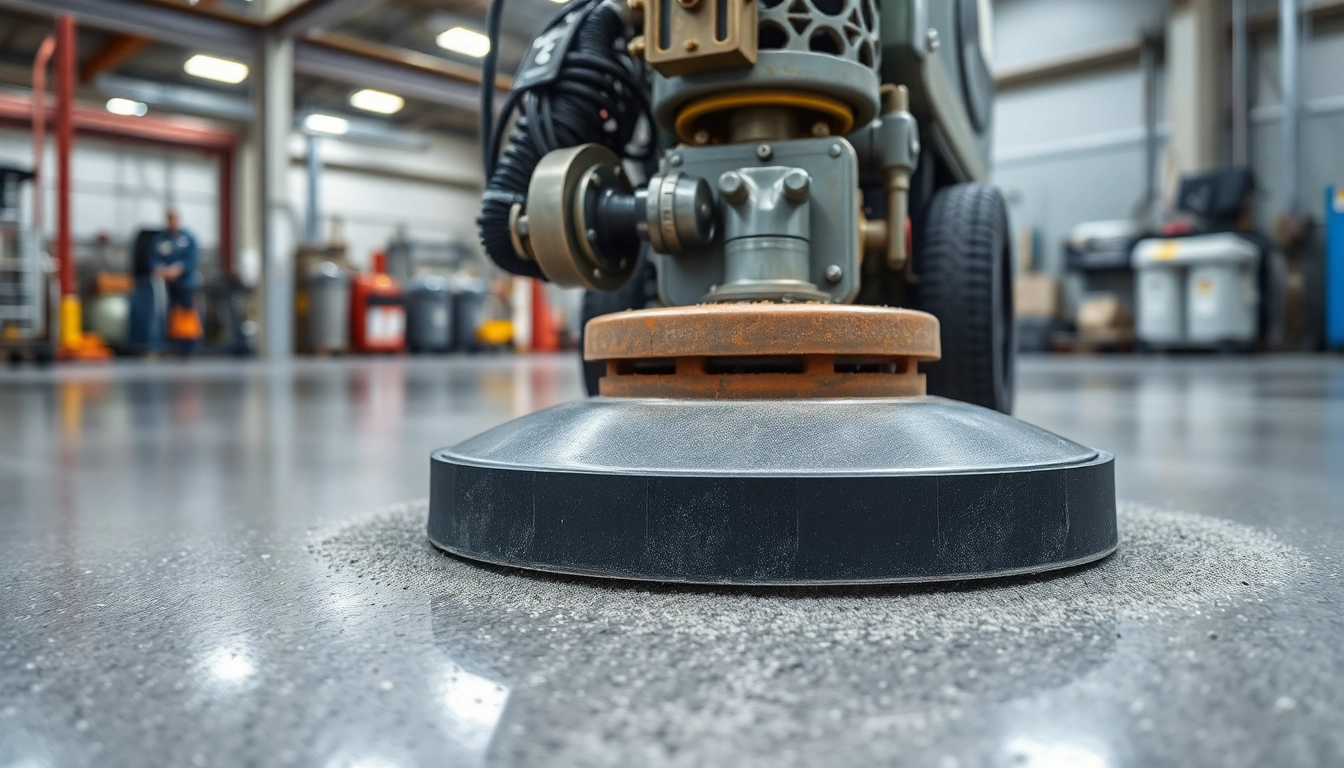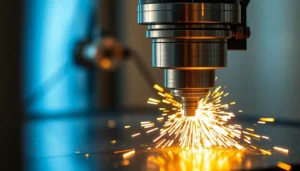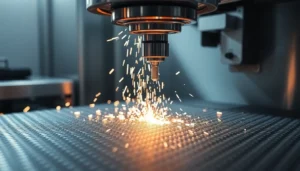Understanding Concrete Grinding in Birmingham
What is concrete grinding and why it matters
Concrete grinding is a precision process that involves removing surface imperfections, coatings, or uneven layers from concrete surfaces to achieve a smooth, durable finish. This technique employs specialized equipment—such as planetary grinders equipped with diamond blades or abrasives—that systematically abrades the surface, eliminating rough patches, stains, or old coatings. In Birmingham’s diverse construction and renovation landscape, concrete grinding plays a vital role in transforming flawed or aged floors into pristine surfaces that meet modern standards of safety, aesthetics, and functionality.
The importance of concrete grinding extends beyond mere appearance. Properly ground concrete enhances safety by reducing trip hazards, improves surface adhesion for subsequent coatings, and significantly extends the longevity of floor systems. Whether preparing a surface for polishing or sealing, or restoring an industrial floor for heavy traffic, concrete grinding is a foundational step that ensures long-term performance. If you’re seeking expert services, consider exploring concrete grinding Birmingham professionals who understand local building codes, material specifics, and environmental considerations.
Common applications for commercial and industrial projects
In Birmingham’s commercial and industrial sectors, concrete grinding serves a wide array of applications:
- Industrial warehouses: Grinding creates smooth, even surfaces that facilitate forklift operations and reduce equipment wear.
- Retail spaces: Polished and ground concrete floors enhance aesthetic appeal and visitor safety, providing a seamless look for customer environments.
- Manufacturing facilities: Durable, slip-resistant floors achieved through grinding ensure worker safety and comply with health standards.
- Residential garages and basements: Ground surfaces in residential properties improve usability, provide a clean look, and prepare for epoxy or other finishes.
These applications demonstrate how vital a skilled concrete grinding service is for maximizing functionality and appearance across Birmingham’s commercial and industrial infrastructure.
Differences between grinding, polishing, and resurfacing
Although often conflated, concrete grinding, polishing, and resurfacing are distinct processes—each serving specific purposes:
- Concrete Grinding: This involves removing surface imperfections, coatings, or unevenness. It is primarily a preparatory or corrective step used to create a flat, clean surface.
- Concrete Polishing: Building on the ground surface, polishing refines the texture to achieve a glossy, high-brightness finish. Polished concrete offers both aesthetic appeal and tangible durability, commonly used in commercial floors.
- Resurfacing: This involves applying a new layer or overlay onto existing concrete, often combined with grinding or polishing to create a uniform, renewed surface. Resurfacing restores old floors or transforms damaged surfaces into attractive, long-lasting environments.
Understanding these differences helps property owners and contractors select the appropriate service for their specific needs, ensuring optimal results and value for investment.
Choosing the Right Concrete Grinding Service in Birmingham
Factors to consider: equipment, experience, certifications
Selecting an expert concrete grinding service requires careful evaluation of several key factors:
- Equipment quality: Modern, well-maintained machinery with variable speed controls and advanced diamond tooling provide cleaner, more precise finishes.
- Experience: Contractors with extensive hands-on experience understand the nuances of different concrete compositions, environmental conditions, and desired finishes.
- Certifications and standards: Look for companies adhering to industry standards such as OSHA compliance, local building codes, and professional affiliations (e.g., national associations for concrete professionals).
In Birmingham, reputable contractors often highlight their certifications on their websites or portfolios; always verify their credentials before engaging their services.
How to evaluate contractor reliability and expertise
To assess a contractor’s reputation and skill:
- Review online testimonials, project portfolios, and case studies showcasing previous work.
- Request references from past clients, particularly those with projects similar to yours.
- Ensure transparent communication about project scope, timelines, methods, and costs.
- Verify their insurance coverage and safety record for liability protection and professionalism.
A dependable contractor will provide detailed proposals, adhere to deadlines, and deliver results that exceed expectations.
Cost considerations and project timelines
Cost varies depending on project size, surface condition, equipment requirements, and desired finish quality. Typically, commercial projects in Birmingham might range from a few hundred to several thousand pounds. It’s crucial to obtain detailed estimates that break down labor, materials, and any additional services such as sealing or coatings.
Timelines for concrete grinding projects can vary from a few hours for small residential jobs to multiple days for large industrial sites. Professional contractors prioritize efficient scheduling without compromising quality, ensuring minimal disruption to your operations.
Best Practices for Effective Concrete Grinding
Preparing your site for grinding services
Proper preparation ensures safety and optimal results. Clear the area of furniture, debris, and loose objects. If necessary, protect surrounding surfaces with masking tape or drop cloths. Inform your contractor of any specific issues like cracks or significant deterioration, so they can tailor their approach accordingly.
Steps involved in professional grinding and finishing
A typical process includes:
- Inspection and assessment: Identifying surface irregularities, contaminants, and project goals.
- Surface preparation: Cleaning and removing existing coatings or sealants.
- Grinding: Sequential grinding with progressively finer diamond tools to achieve a smooth, flat surface.
- Polishing (if required): Applying polishing pads and compounds to attain the desired shine.
- Sealing and finishing: Applying sealants or coatings to protect the surface from stains, wear, and chemicals.
Each step requires precision and expertise to ensure durability and aesthetic appeal.
Ensuring long-lasting results through proper sealing and maintenance
Post-grinding, sealing the concrete with high-quality sealants protects against staining, moisture ingress, and surface wear. Regular maintenance—such as cleaning with pH-neutral cleaners and reapplying sealants as recommended—extends the lifespan of the finished surface, keeping it looking professional and functioning optimally for years to come.
Case Studies: Successful Concrete Grinding Projects in Birmingham
Industrial warehouse floor renovation
A Birmingham logistics company sought to revamp their aging warehouse floor. Skilled contractors performed comprehensive grinding to remove surface imperfections, followed by polishing for a smooth, anti-slip surface. The project improved safety standards, facilitated equipment movement, and extended the floor’s lifespan.
Commercial retail space makeover
A retail chain required a facelift for their stores. Concrete grinding was used to eliminate old coatings and surface flaws. The subsequent polishing process created a sleek, reflective floor that enhanced the store’s appeal. This transformation contributed to increased foot traffic and positive customer perception.
Residential garage and basement upgrades
Homeowners in Birmingham turned to expert concrete grinding to improve basements and garage floors. The process involved grinding down uneven patches and applying finishes for durability and aesthetics. These upgrades added value to properties and created more functional living spaces.
Performance Metrics and Continuing Trends in Concrete Grinding
Measuring durability and aesthetic improvements
Success in concrete grinding is often quantified through impact resistance, surface smoothness (measured via smoothness indices), and visual appeal. Regular testing and client feedback help contractors refine techniques, ensuring that finished floors meet or exceed industry standards.
Emerging technologies and eco-friendly practices
Advancements include laser-guided grinding systems that improve precision, while eco-conscious practices involve dust collection systems and the use of environmentally safe sealants. These innovations reduce environmental impact and promote sustainability in Birmingham’s construction sector.
How to ensure ongoing quality and customer satisfaction
Ongoing quality assurance relies on transparent communication, post-project inspections, and offering maintenance advice. Choosing contractors committed to continuous training, latest technologies, and customer feedback ensures long-term satisfaction.



